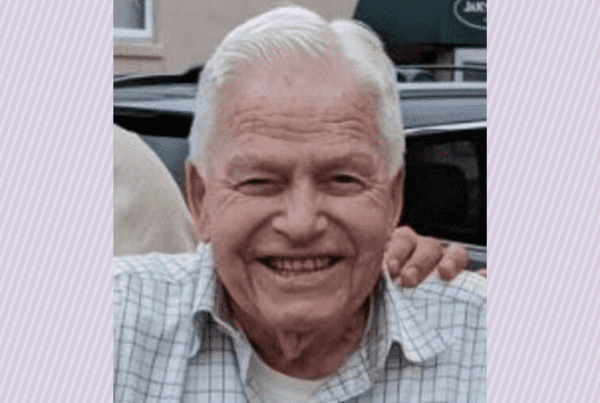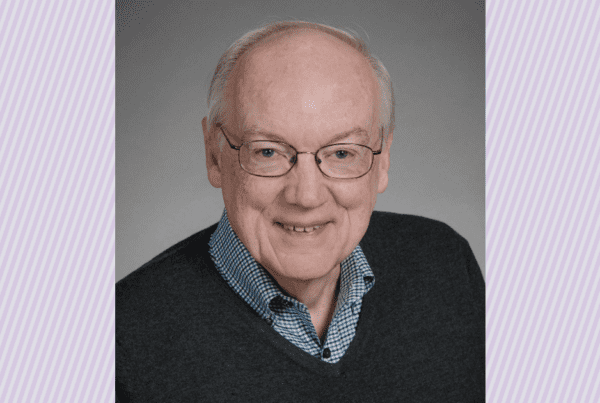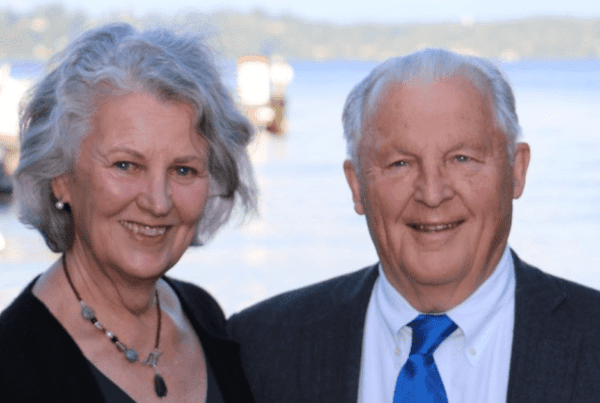I am saddened to announce the passing of Dr. Walter Stolov, professor emeritus of rehabilitation medicine at the UW School of Medicine. He died on September 10 at the age of 90.
Dr. Stolov joined our faculty in 1960 and served as Chair of Rehabilitation Medicine from 1987 to 1999. A masterful clinician, mentor and researcher, he was known for combining toughness (a taskmaster in the eyes of many students and residents) with genuine caring and an enduring passion for the field of rehabilitation medicine.
As department chair, he ushered in a dynamic period of growth and expansion. In 1987, the department had a traditional focus on neurological rehabilitation for people with diseases, injury or disorders of the nervous system. Dr. Stolov saw the need to add a musculoskeletal rehabilitation program so that we could provide care for people with impairments or disabilities due to disease, disorders or injury to the muscles, tendons, ligaments and bones.
He also insisted on putting patients first. He cared for patients at UW Medical Center for a remarkable 50 years. Dr. Peter Esselman, current department chair, points out that Dr. Stolov was devoted to his patients, and they loved his attention to detail and great skill in finding the right solution to their problems. Today, the Rehabilitation Medicine Department is consistently ranked by U.S. News & World Report as one of the top rehabilitation programs in the country.
Dr. Stolov’s research included groundbreaking work in muscle properties, electrodiagnostics, neuropathy and post-polio syndrome. He authored and co-authored more than 100 peer-reviewed publications. Among many prestigious honors, he received the Distinguished Clinician Award from the American Academy of Physical Medicine and Rehabilitation in 1987 and a Lifetime Achievement Award from the American Association of Neuromuscular and Electrodiagnostic Medicine in 2001.
One mark of Dr. Stolov’s impact as a mentor is that many of his students and trainees have become leaders and experts in the field of rehabilitation medicine. Dr. Terry Massagli, who had her first rotation as a UW Medicine resident with Dr. Stolov in 1985, is the inpatient rehabilitation medical director at Seattle Children’s. She says that part of his legacy will be that he trained close to 250 physicians and that many have become chairs at departments across the country.
Upon learning of his death, Dr. Bruce Becker added, “He was ruthless about honesty, unstinting in sharing his clinical skills, caring with his patients, and such a force in my clinical career that I could never thank him enough. In my clinical education, I’ve been blessed with many good teachers, but Walter stands at the top of the pedestal.”
Dr. Esselman himself was a resident when he met Dr. Stolov. “Everyone who ever worked with Dr. Stolov remembers his passion for rehabilitation medicine,” he said. “He had a keen scientific, analytical mind that could take in information, analyze the data and come up with the perfect plan. The field of physical medicine and rehabilitation was enhanced in many ways by his work, and he will be missed.”
UW Medicine established the Walter C. and Anita C. Stolov Research Fund when Anita Stolov died in 2012 after 59 years of marriage to Walter. The fund supports student and resident research projects in the Department of Rehabilitation Medicine.
At this time of loss, there is comfort in knowing that this fund will continue to be a lasting tribute to one of the giants of UW Medicine.
Sincerely,
Paul G. Ramsey, MD


